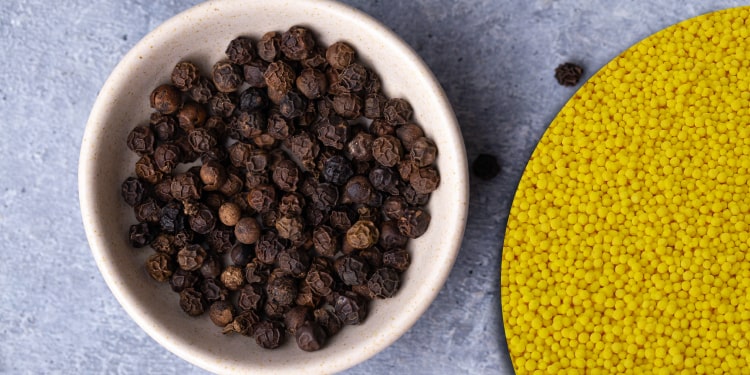
HISTORY OF PEPPERENCAP
The world's most commonly used spice, PIPER NIGRUM, starts life as berries in a clump on a flowering vine (like grapes). Native to Southern India, today Black pepper is grown throughout the tropics.
Archaeological evidence of people using pepper goes back to at least 2000 BC in India. It is known that pepper was exported, but to what extent remains a mystery. Nonetheless, signs of an ancient pepper trade from India to Egypt have been found, including the peppercorns that had been stuffed into the nostrils of Ramses the Great (1303-1213 BC) when he was mummified. Certainly, by 40 AD, the Romans had a thriving trade in spices, including pepper. Leaving the southwestern coast of India in July with the monsoon winds, Roman sea traders brought cinnamon, incense oils, and pepper to their great commercial hub in Alexandria. When the strong monsoon winds switched in the fall, the traders rode them back.
Before the 16th century, pepper was being grown in Java, Sunda, Sumatra, Madagascar, Malaysia, and everywhere in Southeast Asia. These areas traded mainly with China or used the pepper locally. Ports in the Malabar area also served as a stop-off point for much of the trade-in other spices from farther east in the Indian Ocean.
WHAT IS PEPPERENCAP
Pepperencap is an advanced and unique technology incorporated by Umang Global where the extract of ingredients is encapsulated (coated) to make it more available and protects from environmental factors. Pepperencap is available at various active dosage with Enteric coating (EC) and Immediate Release (IR) form, also customization is available as per the end use requirement.
ADVANTAGES OF PEPPERENCAP
- Delivery of higher level of actives
- Protects from environmental influences such as exposure to Oxygen, moisture and light
- For higher dosage of formulations*
USES OF PEPPERENCAP
- May works as an antioxidants
- May benefits to improve brain functions
- May help to reduce diabetes
- May help to reduce the risk of high cholesterol
- May help to maintain gut health
- May have enzymatic activity and metabolism
- May have properties to fight against cancer
- May help to reduce the risk of inflammation







